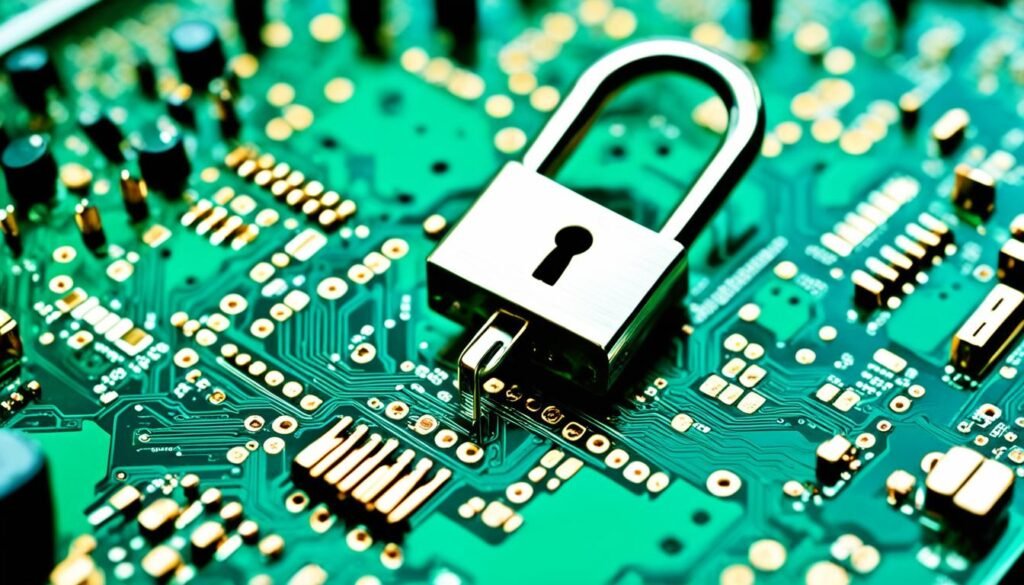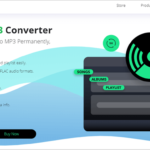Myths about Technology and Gadgets : In today’s fast-paced digital age, technology plays a significant role in our daily lives. However, there are still many myths and misconceptions surrounding technology and gadgets. In this article, we will debunk some common tech myths to help you separate fact from fiction. By uncovering the truth behind these myths, you can use technology more effectively and navigate the digital age with confidence.
Key Takeaways : Myths about Technology and Gadgets
- Debunking common tech myths helps separate fact from fiction.
- Several myths have persisted in the digital age.
- Understanding the truth behind these myths can empower you to use technology more effectively.
Privacy/Incognito Mode Is Totally Private
Many individuals believe that using privacy or incognito mode in web browsers guarantees complete privacy. This is a common myth that needs to be debunked. While privacy mode and incognito mode can indeed help erase your browsing history and cookies, they do not provide full anonymity or ensure complete privacy.
When you use a web browser, your online activities can still be tracked through your browser’s unique fingerprint. This fingerprint includes various details like your IP address, device information, and other identifiers that can be used to monitor your online behavior, despite being in privacy mode.
To truly enhance your online privacy, there are additional measures you can take. Consider using a security-focused browser like Brave or the Tor Browser. These browsers prioritize user privacy and feature built-in measures to protect your online activities. They offer features like blocking trackers, preventing fingerprinting, and encrypting your connection to enhance privacy.
Another effective way to strengthen your privacy protection is by using a virtual private network (VPN). A VPN encrypts your internet traffic and routes it through a secure server, effectively masking your online identity and location. This helps to ensure that your online activities are private and protected from prying eyes.
Some VPN services even offer advanced features like false info injection. This technique obfuscates your online identity by injecting false information into your browsing data, further enhancing your privacy and making it harder for third parties to track or identify you.
“While privacy mode and incognito mode can help erase your browsing history and cookies, they do not provide full anonymity or ensure complete privacy.”
Security-Focused Browsers
If you are concerned about your online privacy, consider using security-focused browsers like Brave or the Tor Browser. These browsers prioritize user privacy and offer a range of features to protect your online activities:
| Security-Focused Browser | Key Features |
|---|---|
| Brave |
|
| Tor Browser |
|
By using security-focused browsers, you can have greater control over your online privacy and minimize the tracking and data collection that occurs while browsing the web.
Remember, while privacy and incognito modes provide some level of protection, they are not foolproof solutions for online privacy. It’s important to combine these modes with additional privacy-enhancing measures like using security-focused browsers and VPNs to ensure maximum privacy protection.
You Are Small Potatoes and Not a Target for Cybercrime
It is a common myth to believe that individuals without sensitive information are safe from cybercrime. This misconception leads many people to think that they are too insignificant to be targeted by hackers or cybercriminals. However, the reality is that everyone possesses personal information that can be valuable to malicious actors.
In today’s digital age, we constantly share personal information online, whether it’s our Social Security numbers, credit card details, or even our email addresses. This data, no matter how small, can be exploited for malicious purposes. Cybercriminals are adept at piecing together fragmented information from various sources to build a comprehensive profile of their victims.
Data breaches, where hackers illegally access databases containing personal information, are unfortunately common occurrences. Even if you consider yourself a smaller target, there is a high probability that your personal information has been compromised in at least one of these breaches.
To safeguard yourself against the risks of cybercrime and identity theft, it is essential to take proactive measures to protect your personal information and enhance your online security:
- Practice good password security by using unique and complex passwords for each website or online account. Avoid using easily guessable passwords such as “123456” or “password”.
- Consider using a password management tool to securely store and manage your passwords.
- Enable two-factor authentication whenever possible to add an extra layer of security to your online accounts.
- Regularly monitor your financial accounts and credit reports for any unusual activity.
- Sign up for ID theft protection and breach-monitoring services that can alert you if your personal information appears in compromised databases.
- Stay informed about the latest cybersecurity best practices and trends to ensure you are up-to-date with the evolving threats.
Remember, even if you consider yourself a small target, your personal information is valuable and can be exploited by cybercriminals. By implementing robust security measures, you can significantly reduce the risk of falling victim to cybercrime and protect your identity online.
| Steps to Protect Yourself | Benefits |
|---|---|
| Practice good password security | Prevents unauthorized access to your accounts |
| Enable two-factor authentication | Adds an extra layer of security to your accounts |
| Regularly monitor financial accounts and credit reports | Identifies and addresses any unusual activity |
| Sign up for ID theft protection and breach-monitoring services | Receive alerts if your personal information appears in compromised databases |
| Stay informed about cybersecurity best practices | Stay up-to-date with the latest threats and protect yourself accordingly |
Implementing these measures will help safeguard your personal information and reduce the risk of becoming a victim of cybercrime. Don’t underestimate the value of your data, and take proactive steps to protect yourself in the digital age.
Apple’s Macs and iPhones Can’t Get Malware
There is a myth that Apple’s Macs and iPhones are immune to malware. While Macs have historically been less prone to malware compared to Windows PCs, they are not completely immune. Security vulnerabilities can still exist in Apple’s products, and jailbroken devices are particularly susceptible to malware.
To protect your Mac or iPhone from potential threats, it is crucial to take proactive measures. Installing reliable antivirus software is an essential step in safeguarding your device against Mac malware and iOS malware. These software solutions can detect and remove malicious programs, providing an extra layer of security.
Additionally, keeping your operating system and applications up to date is vital in addressing security vulnerabilities. Apple frequently releases software updates that patch known security flaws, so make sure to install these updates promptly.
Jailbreaking your iPhone, although it provides more control over the device, can also expose it to greater security risks. Jailbroken devices bypass Apple’s security measures, making them more susceptible to malware. It is recommended to avoid jailbreaking your device unless you fully understand the risks involved and take extra precautions to secure it.
Furthermore, practicing safe browsing habits can significantly reduce the likelihood of encountering malware. Be cautious when clicking on suspicious links or downloading files from untrusted sources. Avoid visiting questionable websites and be wary of phishing attempts.
By following these precautions and staying vigilant, you can minimize the risk of malware infections on your Mac or iPhone. Remember, while Apple devices may provide a higher level of security, they are not invulnerable to threats. Take proactive steps to protect your digital well-being and enjoy a safer technology experience.
Artificial Intelligence Is Sentient
One of the common myths surrounding artificial intelligence (AI) is that it possesses sentience and human-like intelligence. However, the reality is quite different. AI is still limited and lacks true agency or creativity. While advancements in AI have given rise to capabilities such as generative AI, neural networks, and machine learning, it is crucial to understand that AI systems are essentially powerful mimics that rely on patterns and a vast amount of data.
AI technology has made significant progress in tasks such as natural language processing and image recognition. Chatbots, for example, can carry out conversations that seem human-like, but they are programmed responses based on predefined patterns. Similarly, image generators can create incredibly realistic images based on training data, but they lack true understanding or creativity.
It is important to recognize that AI’s intelligence is a result of algorithms and mathematical models. AI systems do not possess self-awareness or emotions. They do not experience the world as humans do.
AI Capabilities and Limitations
AI capabilities can be impressive, but it is essential to understand their limitations. While AI can process and analyze vast amounts of data at lightning speed, it lacks the ability to interpret or understand context in the same way humans do. It operates based on statistical patterns rather than true comprehension.
AI applications, such as virtual assistants and recommendation systems, rely on machine learning algorithms to deliver personalized experiences. These algorithms learn from user interactions and data to make predictions or generate recommendations. However, their knowledge is limited to what they have been trained on and may produce biased or imperfect results.
“AI is still limited and does not possess true agency or creativity.”
Furthermore, achieving true machine consciousness and AI singularity, where AI attains human-level intelligence and surpasses human abilities, would require significant advancements in technology and careful considerations for ethical and safety concerns. While the AI field is continually evolving, we are still far from reaching such a stage.
The Future of AI
The future of AI holds immense potential, but it is crucial to approach its development responsibly and ethically. As AI continues to evolve, researchers and developers must prioritize transparency, accountability, and fairness to mitigate risks and ensure that AI systems are beneficial for society.
AI also presents exciting opportunities for innovation and problem-solving across various industries. From healthcare to transportation, AI can help optimize processes, automate repetitive tasks, and assist in decision-making. However, it is important to strike a balance between embracing AI’s capabilities and understanding its limitations.
Alexa Is Recording Everything
There is a myth that voice assistants like Alexa are constantly recording everything. In truth, devices like Amazon Echo only record audio after the wake word is spoken.
The recorded voice queries can be reviewed and deleted through the device’s settings, either in the Alexa mobile app or on the Amazon website.
How to Delete Voice Queries on Amazon Echo
- Open the Alexa mobile app or visit the Amazon website.
- Navigate to the Settings menu.
- Select Privacy settings.
- Choose Voice History.
- Review the recorded voice queries.
- Select the queries you want to delete and confirm.
Users also have the option to disable voice recording and data sharing to enhance privacy. By adjusting the privacy settings, you can have more control over the recording and storage of your voice queries.
“Privacy is a priority for us. We designed Alexa with multiple layers of privacy protection to give you control over your voice recordings and queries.” – Amazon spokesperson
With the ability to review and delete voice queries, along with privacy settings that empower users, concerns about constant recording can be alleviated. Amazon Echo and other voice assistants offer convenient features while preserving privacy.
Phones Take Pictures as Well as Full-Frame Cameras
Many people believe that smartphone cameras can capture images of the same quality as dedicated full-frame cameras. While smartphone cameras have advanced significantly in recent years, there are several factors that contribute to image quality beyond megapixel count. Sensor size, lens quality, and image processing technologies are all essential elements in determining the overall image quality.
Professional photographers still rely on dedicated professional cameras for their versatility, lens options, and control over exposure settings. Full-frame cameras offer larger sensors, which result in better light gathering capabilities and improved dynamic range. These features make them ideal for professionals who require precise control over their shots.
However, for everyday users, smartphones can produce excellent results thanks to advancements in computational photography and image processing algorithms. The software-driven enhancements, such as HDR (High Dynamic Range) and night mode, can greatly improve the overall image quality.
Smartphone cameras have also become more capable of handling challenging lighting conditions and capturing details in both bright and dark areas of a scene. This is thanks to technologies such as multi-frame processing and smart algorithms that analyze and combine multiple exposures to create a well-balanced and visually appealing final image.
Additionally, smartphones offer the convenience of always being with you, allowing you to capture spontaneous moments without the need to carry around a separate camera. The ease of use and accessibility make smartphone cameras a popular choice for casual photographers.
While dedicated full-frame cameras still have their advantages, it’s important to recognize the remarkable progress made by smartphone cameras in recent years. For everyday users looking to capture high-quality images with ease, smartphones can be a reliable and convenient option.
Image:
Batteries Develop a ‘Memory’
There is a common myth surrounding batteries that they develop a memory and should be fully discharged before charging. However, it’s important to note that this myth mainly applies to older nickel-cadmium batteries. In the case of modern lithium-ion batteries, which are commonly used in our devices, this idea of battery memory is not applicable.
Lithium-ion batteries are equipped with advanced battery management systems that help prevent overcharging and memory effects. These systems regulate the charging process, ensuring that the battery is charged optimally and that overcharging is avoided. This means that you don’t need to worry about fully discharging your device’s battery before plugging it in.
Moreover, frequent full discharges can actually degrade the overall health of a lithium-ion battery. It is generally best to charge your devices when they have a reasonable charge level. This practice helps maintain the battery’s health and prolong its lifespan.
To maximize the life of your lithium-ion battery, it is recommended to follow good charging habits. This includes avoiding extreme temperatures, as exposure to high heat or cold can negatively affect battery performance. Maintaining a moderate, consistent temperature is beneficial for the longevity of your battery.
In summary, contrary to the old adage, modern lithium-ion batteries do not develop a memory and should not be fully discharged before charging. Following good charging habits, such as charging when your device has a reasonable charge level and avoiding extreme temperatures, can help prolong the lifespan of your battery and ensure optimal performance.
Battery Charging Tips
| Charging Habits | Effect on Battery Health |
|---|---|
| Charging when the device has a reasonable charge level | Optimal battery health |
| Regularly fully discharging the battery before charging | Degrades battery health |
| Avoiding exposure to extreme temperatures | Preserves battery performance |
By following these charging tips, you can help prolong the life of your lithium-ion batteries, ensuring that your devices remain powered and ready for use when you need them.
Myths in the tech world, including common tech myths that continue to circulate, play a significant role in shaping our perceptions and decisions regarding technology. Despite the fact that technology continues to advance, myths persist, such as the belief that Mac computers offer a seamless technology experience. However, debunking these myths empowers us to make informed choices and avoid misunderstandings.
Relying on trusted technology professionals to provide accurate information is crucial, especially when surfing the internet using gadgets plugged in overnight. By addressing tech myths and providing accurate information, we can ensure that our technology needs are met without falling victim to misconceptions about gadgets and devices.
Debunking common tech myths is essential in the digital age where technology plays a significant role. It’s crucial to separate fact from fiction to use technology more effectively. For instance, while many believe that leaving devices plugged in overnight will harm the battery, the truth behind these myths helps prevent overcharging and achieve optimal results. Despite the popularity of Mac computers, it’s a common misconception that they are impervious to viruses and malware.
However, even Mac users should consider using reliable antivirus software and practicing safe browsing habits to keep their devices secure. Additionally, determining the resolution of an image is not solely based on pixel count, as other image processing technologies also contribute to image quality. Therefore, it’s important to consider the complete camera system to maximize the potential of smartphone cameras. While it’s true that ISPs and websites can still track your IP address, using incognito mode in web browsers can help maintain privacy to some extent. Overall, cutting through the tech myths and using various tools and devices can lead to better understanding and utilization of technology in our daily lives.
Also Read : How Metaverse Works? Secrets Of Metaverse
Conclusion
Debunking tech myths empowers us to use technology more effectively and navigate the digital age with confidence. By separating fact from fiction, we can make informed decisions, protect our data and privacy online, and maximize the potential of the technology we use.
It is important to rely on trusted technology professionals for guidance and support in debunking tech myths, as they can provide reliable information and services to ensure a seamless technology experience. They can help us understand the truth behind common technology misconceptions and provide valuable insights into data protection and privacy online.
Let’s embrace the true power of technology by debunking tech myths together. By gaining a deeper understanding of technology and its capabilities, we can maximize its potential and shape a better digital future, where data protection and privacy are prioritized.
FAQs
Q: What is the importance of debunking myths about technology and gadgets?
A: Debunking myths helps you use technology more effectively and efficiently by separating fact from fiction.
Q: Why should we be cautious about leaving gadgets plugged in overnight?
A: Leaving gadgets plugged in overnight is a common misconception that can potentially damage the device’s battery over time, even if it remains connected to the power source.
Q: Is it true that Mac computers are immune to viruses?
A: A persistent tech myth is that Mac computers are immune to viruses, but the truth is that they can still be affected and it’s important to take necessary precautions.
Q: How can debunking myths about technology help us make informed decisions?
A: Debunking myths empowers us to make informed decisions when choosing a smartphone, camera system, or any other tech gadget to achieve optimal results.
Q: Do gadgets charge faster in airplane mode?
A: One common tech myth is that gadgets charge faster in airplane mode, but the truth is that it has no significant impact on the charging speed.
Q: Can using a virtual private network (VPN) truly protect your privacy online?
A: Using a VPN can enhance your online privacy by encrypting your internet connection, but it does not completely anonymize your online activities.
Q: What are the risks of believing in tech myths?
A: Believing in tech myths can lead to misunderstandings, poor decision-making, and potentially harm your devices or compromise your online security.
Source Links
- https://www.linkedin.com/pulse/separating-fact-from-fiction-debunking-common
- https://dygma.com/blogs/stories/technomyths
- https://www.pcmag.com/articles/dont-believe-these-ridiculous-tech-myths









